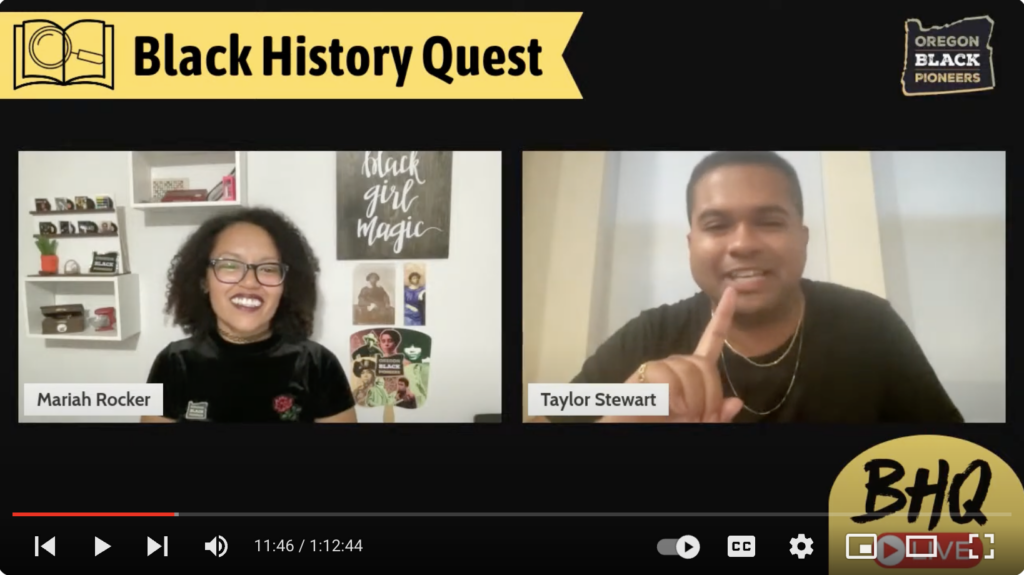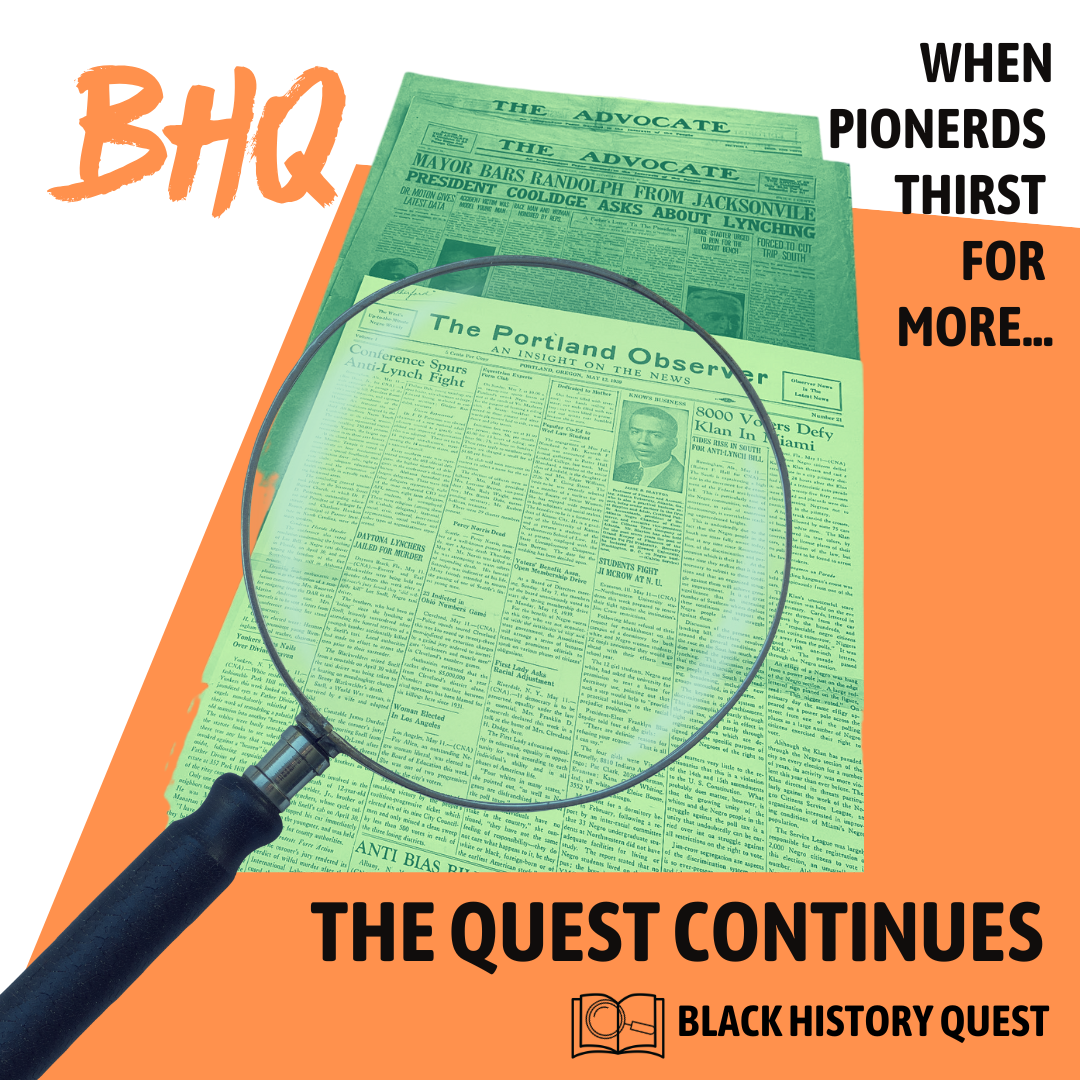Hey friends! It’s your host and fellow pionerd, Mariah Rocker, with the latest issue of The Quest Continues. It’s your go-to source for all BHQ news, so read on for an overview of our last episode and a look at what’s to come.

Black History Quest: The Green Book in Oregon
September’s episode featured Taylor Stewart, the Executive Director of the Oregon Remembrance Project. Taylor examined the Green Book’s entries for Oregon and Washington, to identify what could be learned from comparing the two.
Between 1936 and 1967, The Negro Motorist Green Book provided detailed information on hotels, restaurants, drugstores, barbershops, campsites, and other amenities across the US that catered to Black people, offering options for Black travelers to receive services without suffering the indignities of racial discrimination or the threat of violence. The Green Book entries were listed by state, so travelers could easily identify safe locations across the country.
The vast differences in the number and type of listing in the Green Book for these two states piqued Taylor’s interest, leading him to examine the difference in domestic migration patterns between Oregon and Washington. Follow along as Taylor dives into the factors that shaped Black migration in the 19th and 20th centuries and how those factors shaped the communities that produced listings in the Green Book.
We asked Taylor what he would research if he had more time:
“What’s been on my mind since the presentation is less about what I didn’t have time to get to, but has been more along the lines of where I think the research should go from here. In particular, after cataloging all of the Oregon Green Book listings, the next step is to add entries for businesses or individuals who were a safe harbor for African Americans but who weren’t listed in the Green Book.
I had already been familiar with the Motel Del Rogue in Grants Pass who provided African Americans who were performing in town, including the Harlem Globetrotters, a place to stay as the motel was just outside of city limits. However, just this month on my travels to eastern Oregon, I had the opportunity to learn about Lucky Trice, father to Gwen Trice of the Maxville Heritage Interpretive Center, who for many years was a safe harbor and guide for African Americans passing through his home in La Grande.
I believe businesses and individuals like the Motel Del Rogue and Lucky Trice deserve to be cataloged in the history of the Green Book in Oregon despite their absence from the original publication. Perhaps, the Oregon Black Pioneers, myself, and you, the reader, can work to collect and catalogue these additional stories into a new database on the businesses and individuals who helped support African Americans in this peculiar paradise.”
Here are some helpful links:
Green Book Scans, New York Public Library
Oregon/Washington Green Book Listings Spreadsheet
Sneak Peek
Next month’s BHQ features retired US Forest Service historian Jeff LaLande. Focusing on Southern Oregon during the Great Depression, this presentation shines a light on the experience of African-American members of the New Deal’s Civilian Conservation Corps — which had begun as a racially integrated employment program for young men but then became segregated.
Tune in on Tuesday, November 19 at 7:00 PM on Facebook or YouTube to learn more!
Want more?
Do you have information to add to any of the stories featured on Black History Quest? Share your findings with us!
Want to be a future history investigator? Send an email to hello@oregonblackpioneers.org!
Looking for even more? Check out our previous episodes of Black History Quest on YouTube.
Signing off,


